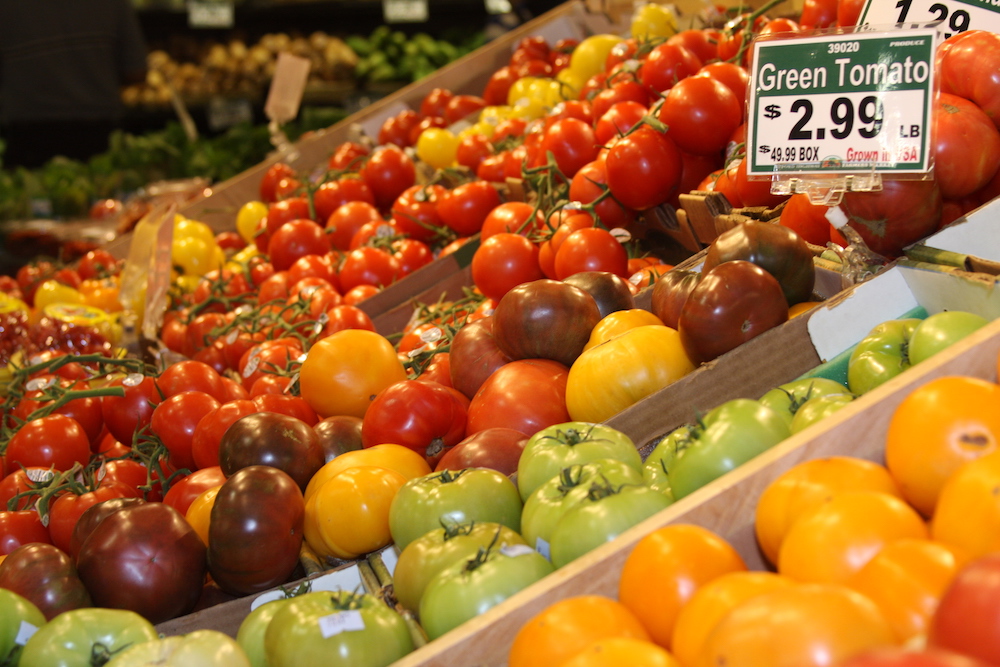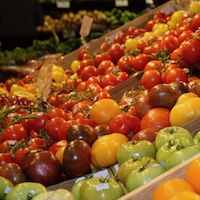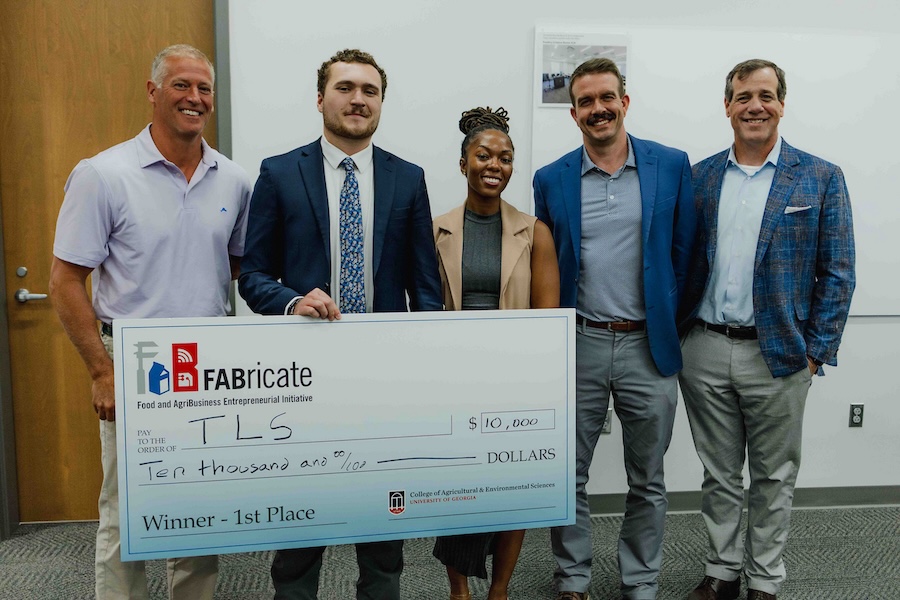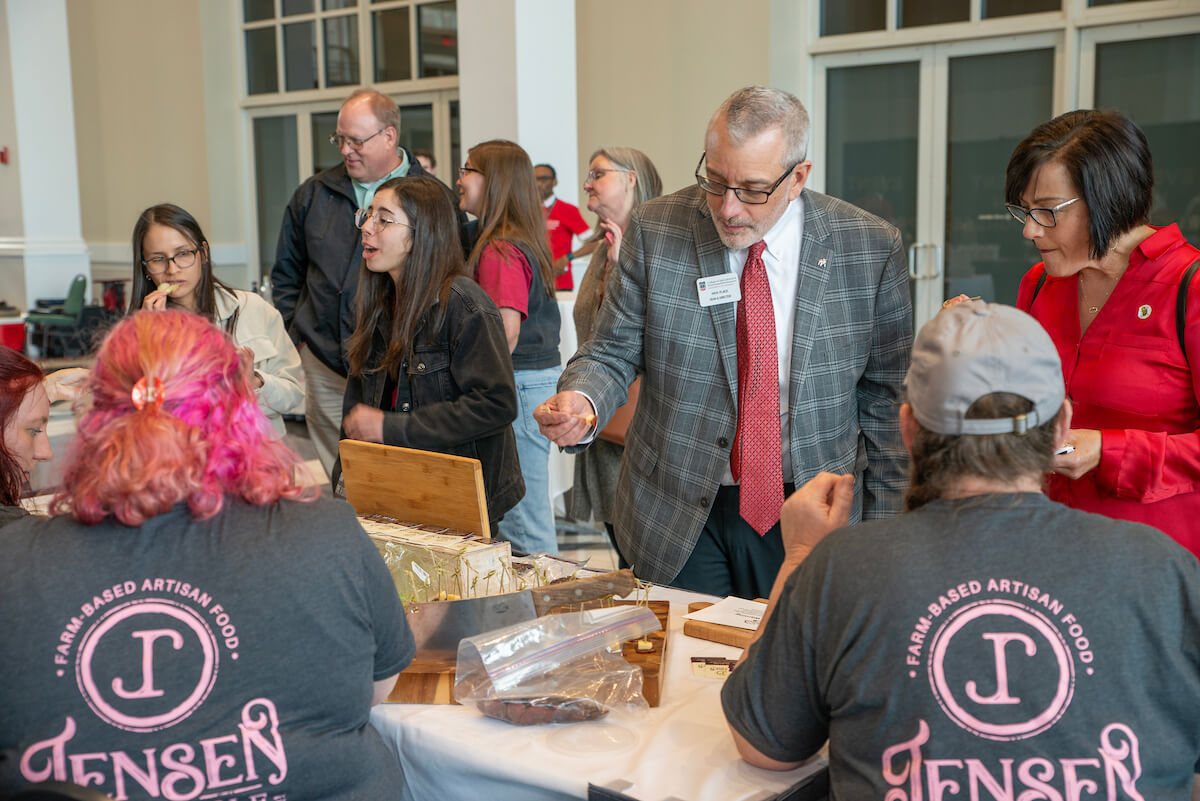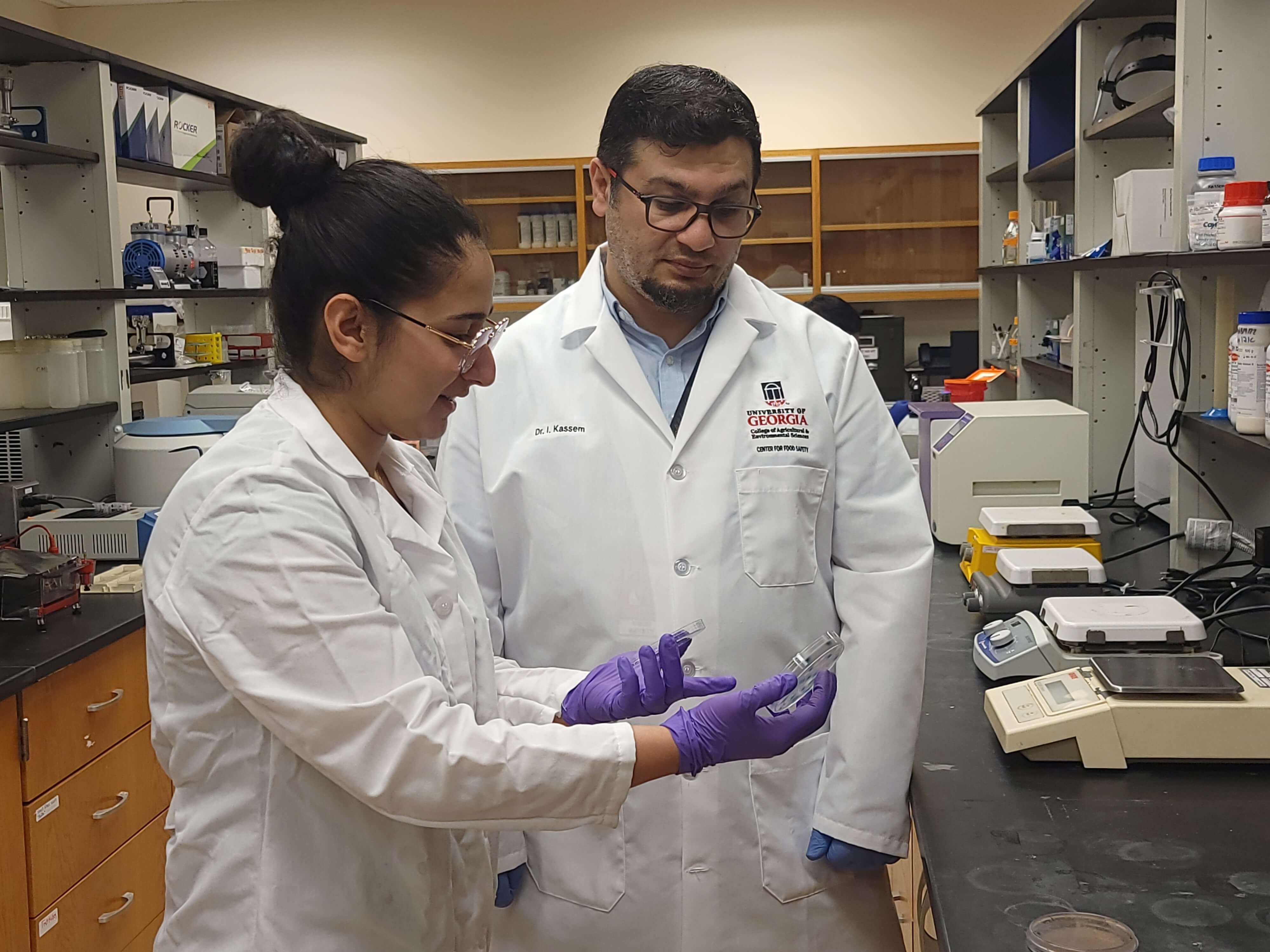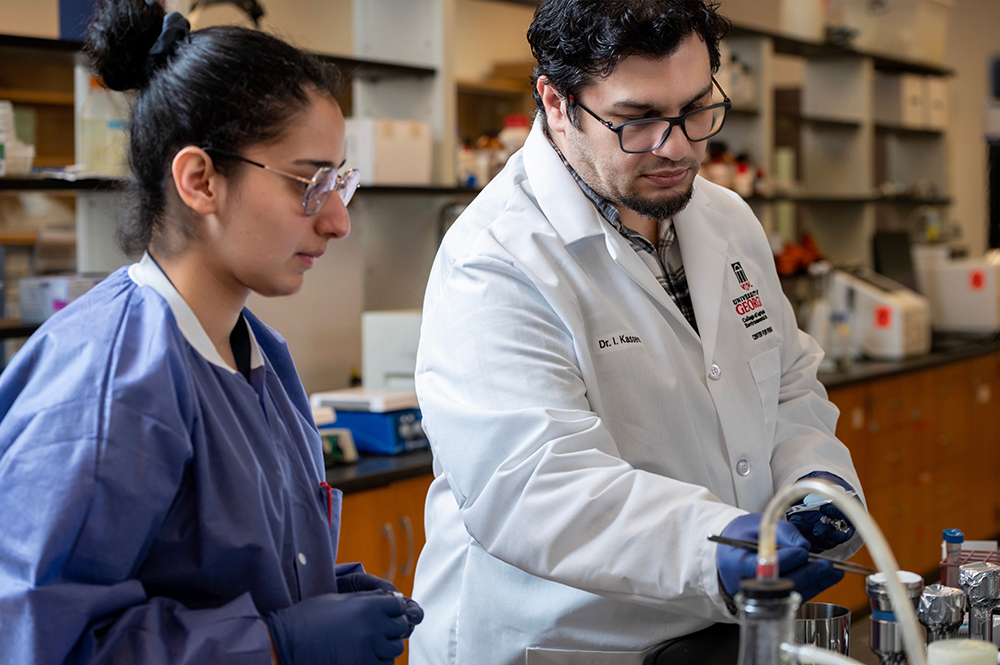Three University of Georgia food scientists are among the recipients of grants awarded by the Center for Produce Safety (CPS) as part of its $2.7 million program. The grants will fund projects focused on food safety issues related to fruits and vegetables.
“Right now, you hear a lot about Cyclospora causing issues with fresh produce, or about how transference of pathogens in water is initiating problems in general in our industry," said Dave Corsi, chair of the CPS board of directors and vice president of produce and floral at Wegmans Food Markets, Rochester, New York. “If you take a step back and look at the Center for Produce Safety's latest grant recipients, their project topics address the most pressing, relevant produce food safety issues.”
Xiangyu Deng, an associate professor in the UGA Center for Food Safety on the Griffin campus, will receive $186,733 to continue his research into foodborne pathogens, specifically Listeria monocytogenes, and the tolerance it may develop to sanitizers used to destroy it in food processing facilities.
"Through this project, we want to help settle the debate on whether Listeria monocytogenes develops tolerance to common sanitizers," said Deng, a faculty member in the College of Agricultural and Environmental Sciences (CAES). "We will further explore if such tolerance is relevant to sanitizing practices in the produce industry by studying its possibility, duration and genetic predictors."
Ynés Ortega, also an associate professor at the UGA Center for Food Safety and CAES faculty member, will receive $231,861 to determine the prevalence and persistence of Cyclospora in California and Florida, the two major produce-growing states in the U.S.
An acclaimed parasitologist, Ortega’s goals are to determine the best method for environmental testing for the parasite, to identify where it is being distributed in the U.S., and to implement monitoring and intervention strategies in the U.S. and other countries where the parasite is prevalent.
“We propose to test river and canal water … and examine the prevalence of Cyclospora in fresh produce,” Ortega said. “The significance of this project is that we will be able to determine if Cyclospora oocysts are present in surface waters in two states where agriculture is intensive and we will be able to recommend a suitable method to test for Cyclospora in agricultural settings.”
Cyclosporiasis, an intestinal illness, is caused by consuming food or water contaminated with the parasite. Historically, Cyclospora outbreaks have been associated with the ingestion of imported fresh produce, but the number of cases linked to produce grown in the U.S. is on the rise, Ortega said.
Laurel Dunn, assistant professor of food science and technology at CAES, will examine the environmental microbial risks associated with vented produce in distribution centers. She will receive $317,563 to evaluate pathogen prevalence in facilities that handle unsealed produce and industry practices that might contribute to increased or decreased food safety risks.
Produce is typically packed in vented bags, plastic tins or boxes that are vented to accommodate the gas and vapor exchange that occurs naturally after fruits and vegetables are harvested. Dunn will partner with more than 20 produce distribution centers with a goal of developing guidelines to reduce any potential hazards.
The Center for Produce Safety funds science aimed at finding solutions to food safety issues and fueling change in all parts of the supply chain. To learn more about the UGA Center for Food Safety, visit cfs.caes.uga.edu.

